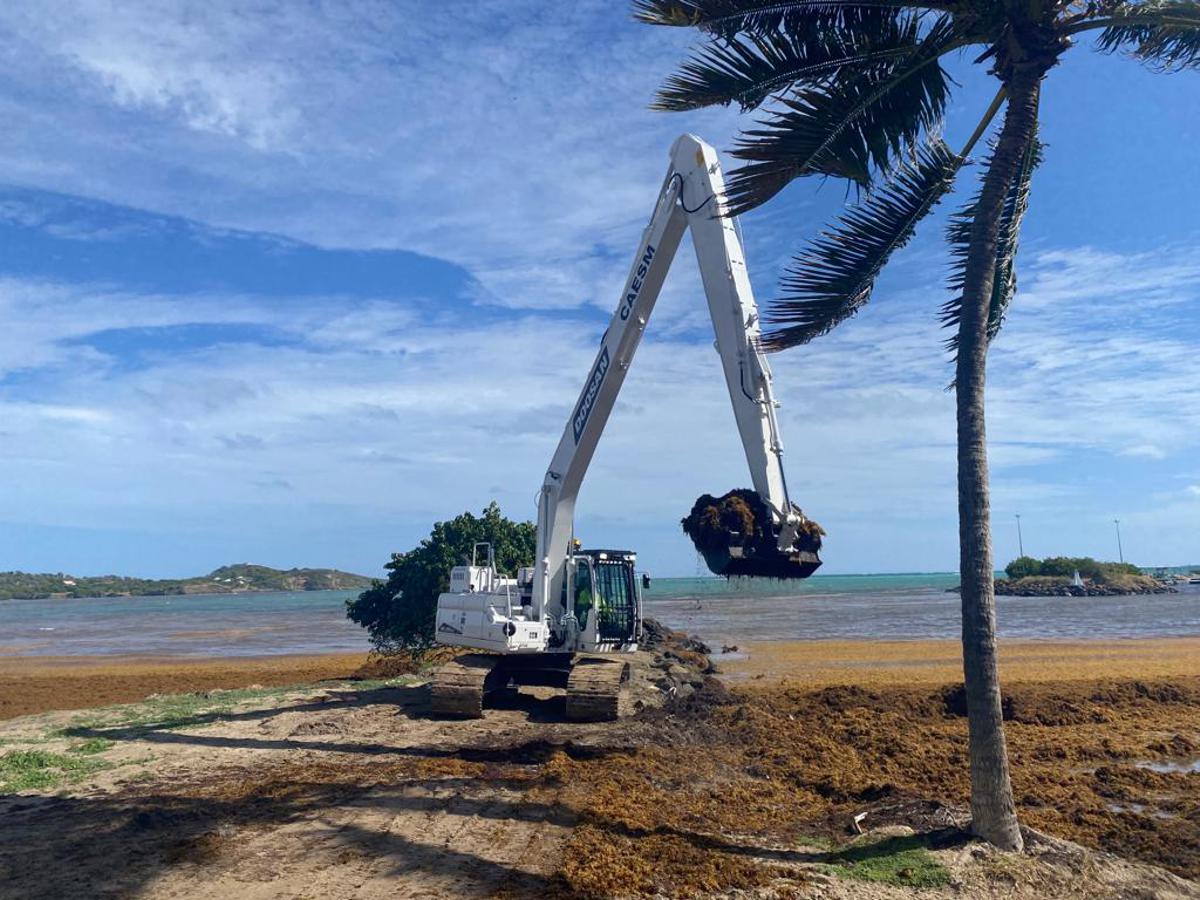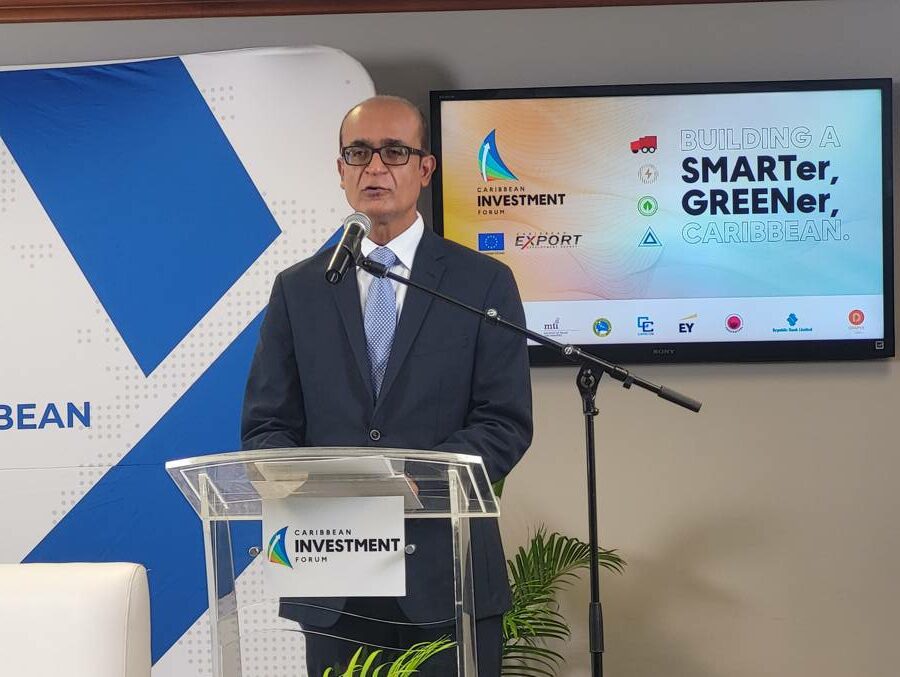Your Guide to Caribbean Real Estate for Global Investors
Caribbean real estate provides valuable opportunities for global investors looking for property in a region celebrated for its stunning landscapes and promising economic development.
In particular, programs like Antigua citizenship by investment program not only allow property acquisition but also offer the added advantage of obtaining a second passport, making it an appealing option for those seeking both investment and citizenship benefits.
Zlata Erlach, Head of the Austrian office, Caribbean Investment Programs Expert at Immigrant Invest, provides a detailed look at the Caribbean real estate market, highlighting key investment opportunities in five countries.
Whether you’re aiming to buy a vacation home, generate rental income, or make a strategic investment, staying informed about current market trends and dynamics is crucial for making the right decision.
Caribbean Real Estate Market Overview
The Caribbean real estate market offers a wide array of opportunities, from high-end beachfront estates to more budget-friendly residential options, catering to various investment needs in 2024. In recent years, the region has attracted investors due to its:
- favourable tax regimes;
- economic stability;
- growing tourism industry.
Caribbean nations offer citizenship by investment programs, making them even more appealing to global investors. These programs have gained traction as countries adapt to the growing demand for dual citizenship and secure investment opportunities.
Key drivers of the Caribbean real estate market include tourism, foreign direct investment, and government incentives. The region’s appeal as a tourist destination has led to increased demand for vacation properties, which, in turn, boosts the real estate market.
While the Caribbean real estate market offers numerous opportunities, there are also challenges. These include the region’s vulnerability to natural disasters, economic fluctuations, and varying legal frameworks.
Investors need to stay informed and conduct comprehensive due diligence to successfully navigate these challenges, especially given the evolving economic and environmental conditions in the Caribbean region.
Real Estate Investment in 5 Caribbean Countries
Below is an overview of Caribbean islands for real estate investment.
Antigua and Barbuda
The country’s Citizenship by Investment Programme allows investors to acquire citizenship real estate investment starts at $300,000.
Property prices in Antigua and Barbuda vary, with luxury properties commanding higher prices. Property prices in Antigua and Barbuda differ significantly depending on location and property type, with luxury properties, especially those near prime tourist areas.
The growth of tourism in Antigua and Barbuda has created significant rental opportunities for investors. Properties located in popular tourist destinations can yield significant rental income, especially during peak travel periods.
With the ongoing recovery of global tourism in 2024, this positions the country as a prime location for investors seeking to capitalise on the growing demand for vacation rentals and income-generating properties.
Dominica
The country is known for its eco-friendly properties and natural beauty. The real estate market here is smaller compared to other Caribbean nations, but it offers unique opportunities for investors interested in sustainable development.
Dominica’s Citizenship by Investment Program is one of the most affordable in the Caribbean, with a minimum investment of $200,000.
Investors interested in second passports and environmental sustainability may find appealing opportunities in Dominica’s real estate market.
Grenada
Grenada’s real estate market continues to expand, offering fresh opportunities in both residential and commercial sectors. With increasing demand driven by tourism and foreign investment, the market is seeing growth in high-end residential properties and new commercial developments. This trend makes Grenada an attractive option for investors looking to capitalise on a dynamic and evolving real estate landscape in 2024.
The country’s Citizenship by Investment Program has also contributed to the demand for a real estate option of $270,000.
St Lucia
The island’s Citizenship by Investment Program is a significant driver of the real estate market, attracting investors seeking both property and citizenship for at least $300,000.
St Lucia’s real estate market has seen steady growth, supported by its strong tourism sector and favourable investment climate.
St Lucia is known for its luxury lifestyle, with high-end resorts, spas, and golf courses. For investors seeking both property and a premium lifestyle, St Lucia offers an attractive combination of luxury real estate and a relaxed Caribbean atmosphere.
St Kitts and Nevis
The country has a well-established real estate market, particularly in the luxury segment. The islands’ Citizenship by Investment Program is one of the oldest in the Caribbean, but requires the most significant minimum investment requirements of $400,000.
The steady political landscape and robust economy in St Kitts and Nevis enhance its appeal as a prime location for real estate investment, especially in 2024.
The thriving tourism sector remains a key driver of the property market, attracting ongoing interest from international buyers.
How to Make Real Estate Investments in Caribbean Countries
Investing in Caribbean real estate involves several key steps.
Step 1. Choosing the country: First, investors need to research the market and identify the best investment opportunities.
Step 2. Signing a Services Agreement with a licensed agent: Each Caribbean country has its own legal requirements for foreign investors. It’s crucial to collaborate with local legal professionals who are up-to-date on current regulations to successfully navigate the legal landscape and facilitate a seamless investment process.
Step 3. Choosing investment options: Financing options for real estate investments in the Caribbean vary by country. While some investors may choose to finance their purchases through local banks, others may opt for international financing options. Some investors might prefer to secure financing through local banks, but increasingly, international financing options are becoming more attractive due to competitive rates and flexible terms. With the rise of global financial services, securing funding from international institutions can provide greater financial leverage and access to a broader range of products tailored to investors’ needs.
Step 4. Managing a property: Partnering with reputable local property management companies is crucial. They can handle day-to-day operations, maintenance, and tenant relations, ensuring that your investment remains profitable and well-maintained in the long term, especially in a fluctuating market.
Step 5. Investment exit: An essential aspect of real estate investment is planning an exit strategy. Understanding the resale market, potential for appreciation, and demand for properties will help investors make informed decisions when they eventually decide to sell.
A Region Full of Investment Opportunities
The Caribbean offers diverse real estate investment opportunities, each with its unique advantages. Whether you are interested in luxury properties, eco-friendly developments, or commercial real estate, the region has something to offer.
To succeed in today’s dynamic Caribbean real estate market, staying updated on the latest trends and conducting detailed due diligence is critical to overcoming challenges and ensuring the best possible returns on your investment.





























